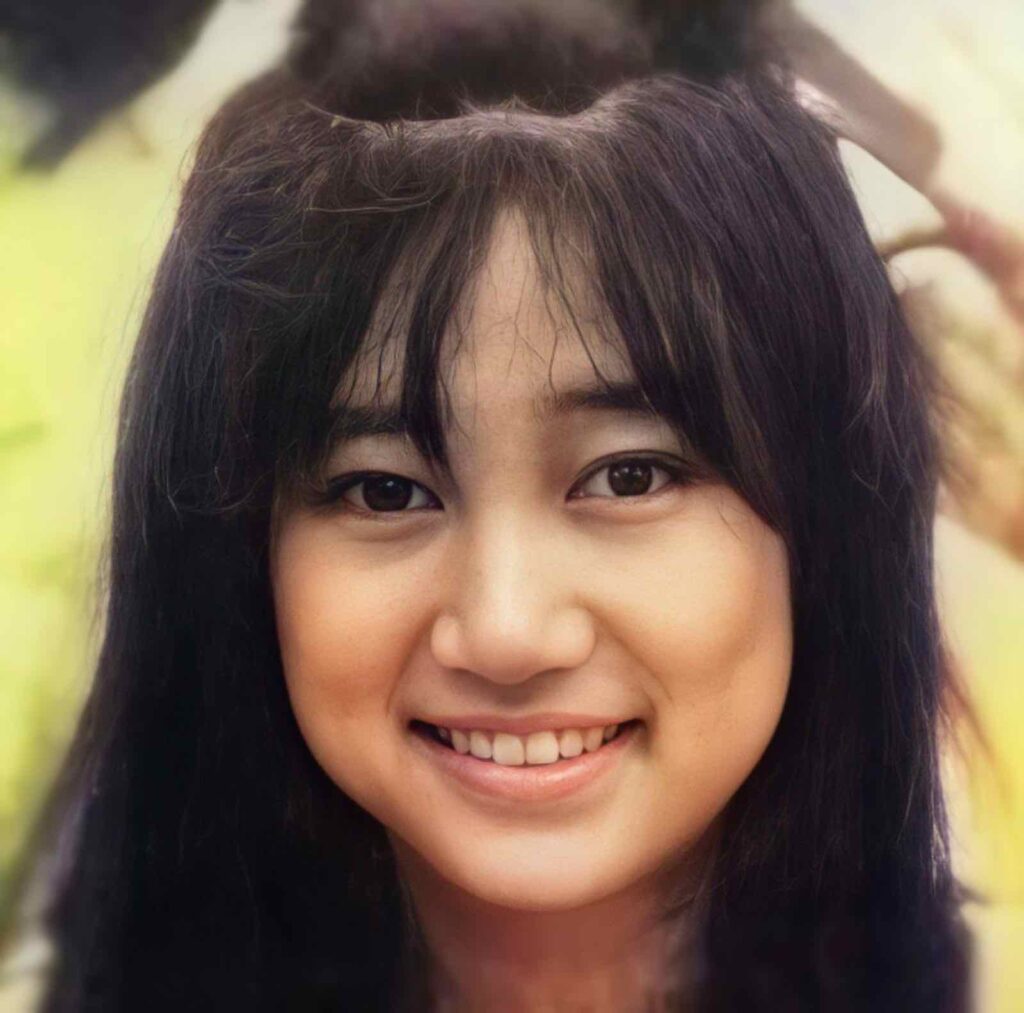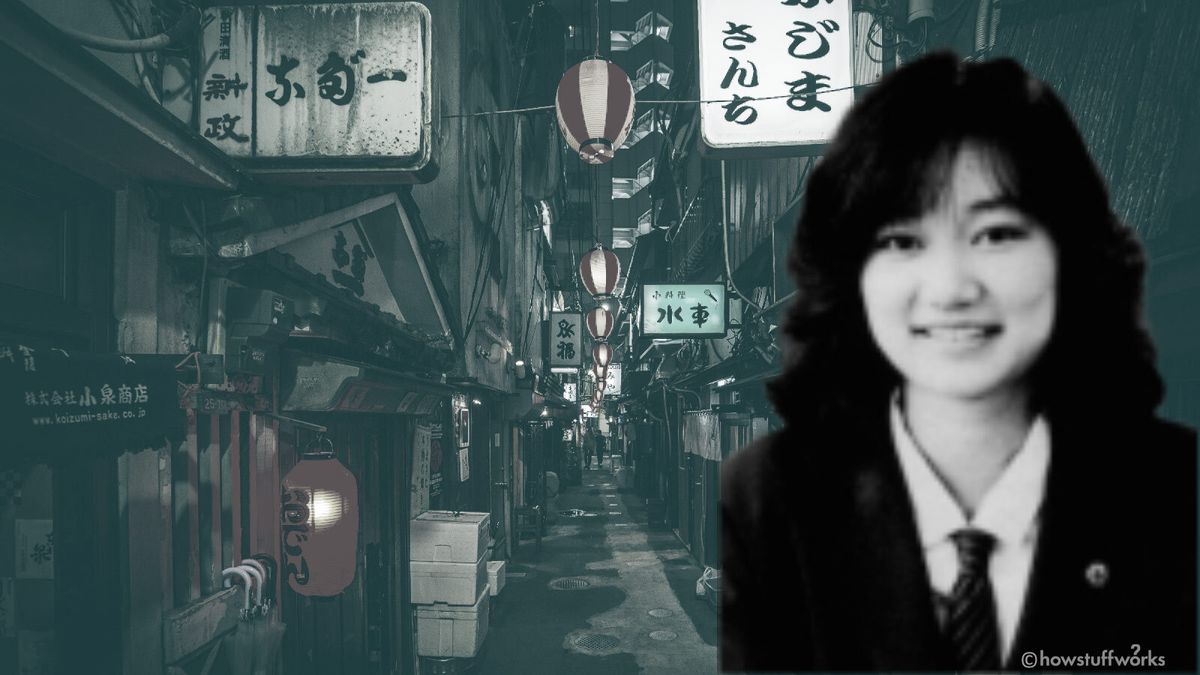It’s been over three decades since the chilling case of Junko Furuta shook Japan to its core. This brutal crime remains one of the darkest chapters in the nation's history. The story of how four teenage boys tortured and murdered a 14-year-old girl for 44 days has haunted the public ever since. But what happened to the killers? Where are they now? And why does this case continue to resonate so deeply with people around the world? If you're diving into this topic, you're not alone. This is a story that demands answers.
When we talk about the Junko Furuta case, it’s impossible to ignore the sheer horror of the events. For those unfamiliar, this was more than just a murder—it was a prolonged nightmare. The killers, all minors at the time, subjected Junko to unimaginable suffering. It’s a case that raises questions about justice, rehabilitation, and the capacity for evil within individuals, especially when they’re young.
As we delve deeper into the lives of these killers today, we’ll uncover their current status, the impact of their actions on their own lives, and the ongoing debates surrounding their punishment—or lack thereof. This isn’t just a story about crime; it’s about the consequences of choices and the long shadow cast by past actions. Let’s take a closer look at what happened to Junko Furuta’s killers now.
Read also:Ernie Hudson Reflects On His Iconic Career Family And Legacy
Table of Contents
- Biography of Junko Furuta
- The Case: A Chilling Overview
- Who Were the Killers?
- Legal Outcomes: What Happened Next?
- Where Are They Now?
- Psychological Impact on the Killers
- Societal Reaction and Public Opinion
- Media Coverage Through the Years
- Lessons Learned from the Case
- Conclusion: Reflections on Justice and Humanity
Biography of Junko Furuta
Junko Furuta was a bright, promising 14-year-old girl living in Nishinomiya, Japan, in 1988. She was a student at a local junior high school and had her whole life ahead of her. But her life was tragically cut short by a group of four teenage boys who abducted her after a volleyball game. Here’s a quick overview of her life:
| Full Name | Junko Furuta |
|---|---|
| Date of Birth | June 22, 1974 |
| Date of Death | December 3, 1988 |
| Age at Death | 14 |
| Place of Birth | Nishinomiya, Hyōgo, Japan |
Her story is a reminder of the fragility of life and the importance of protecting the vulnerable. Now, let’s shift our focus to the events that unfolded and the individuals responsible for her tragic death.
The Case: A Chilling Overview
The details of the case are harrowing. Junko Furuta was abducted by four teenage boys after a volleyball game on November 25, 1988. For the next 44 days, she was held captive, tortured, and eventually murdered. The killers were all under 18 at the time, which complicated the legal proceedings and raised questions about the treatment of juvenile offenders.
This case wasn’t just a local story; it became a national scandal in Japan. The public was shocked by the brutality of the crime and the fact that the perpetrators were so young. The media coverage was intense, and the nation demanded answers. But the legal system in Japan, particularly when it came to juvenile offenders, had its limitations.
Who Were the Killers?
The killers remain unnamed in official records due to their status as minors at the time of the crime. However, some details about them have emerged over the years. Here’s what we know:
- Kensuke Miyazawa: The ringleader of the group, believed to have orchestrated the entire ordeal. He was 17 at the time.
- Yasushi Watanabe: Another key figure in the group, who played a significant role in the torture and abuse of Junko. He was also 17.
- Hideyuki Konno: One of the younger members of the group, aged 16. His involvement was crucial but less prominent than the others.
- Unknown Perpetrator: The fourth individual has remained largely anonymous, with little information available about their role in the crime.
Understanding the identities of these individuals helps us contextualize their actions and the consequences they faced—or didn’t face.
Read also:Robert Duvall The Iconic Hollywood Legend Who Keeps Raising The Bar
Legal Outcomes: What Happened Next?
The legal process surrounding the Junko Furuta case was fraught with controversy. Since all the perpetrators were minors, they were tried in juvenile court. Under Japanese law at the time, juveniles could not be sentenced to death or life imprisonment without parole. This led to widespread dissatisfaction among the public, who felt that the punishment didn’t fit the crime.
Here’s a breakdown of the legal outcomes:
- Kensuke Miyazawa received a sentence of life imprisonment.
- Yasushi Watanabe was sentenced to 15 years in prison.
- Hideyuki Konno received a 12-year sentence.
- The fourth individual received a lighter sentence due to their lesser involvement.
Many argue that these sentences were too lenient given the severity of the crime. The legal system’s handling of the case continues to be a point of contention in discussions about juvenile justice.
Where Are They Now?
Decades have passed since the crime, and the whereabouts of the killers have been a subject of fascination and concern. Let’s explore what’s known about their current statuses:
- Kensuke Miyazawa: Still serving his life sentence in a Japanese prison. There’s been no indication of his release or parole.
- Yasushi Watanabe: Released from prison after serving his 15-year sentence. Little is known about his life post-release.
- Hideyuki Konno: Released after serving his 12-year sentence. Details about his life since then are scarce.
- Fourth Perpetrator: Believed to have reintegrated into society, though specifics remain confidential.
The anonymity granted to these individuals by the legal system means that much of their current lives remain shrouded in mystery. Some argue that this anonymity is necessary for rehabilitation, while others believe it’s unjust for the victims’ families.
Psychological Impact on the Killers
What happens to someone who commits such a heinous crime at such a young age? The psychological impact on the Junko Furuta killers is a complex and often overlooked aspect of the case. Studies show that individuals who commit violent crimes as juveniles often struggle with mental health issues, guilt, and societal stigma later in life.
Experts suggest that the killers may have faced challenges reintegrating into society, dealing with their past actions, and building new lives. Some may have sought counseling or therapy, while others may have chosen to suppress their memories. The long-term psychological effects of their crimes are likely profound and lasting.
Societal Reaction and Public Opinion
The reaction to the Junko Furuta case in Japan and beyond has been a mix of anger, sadness, and frustration. The public outcry was immense, with many calling for changes in the juvenile justice system. Debates about the age of criminal responsibility, the treatment of juvenile offenders, and the role of rehabilitation versus punishment have continued to this day.
Some argue that the system failed Junko and her family by not holding the killers accountable enough. Others believe that the focus should be on preventing such crimes in the future rather than punishing the perpetrators harshly. The societal implications of the case extend far beyond the legal outcomes.
Media Coverage Through the Years
From the moment the case broke, the media played a significant role in shaping public perception. The intense coverage brought the story to the forefront of national and international consciousness. Over the years, documentaries, books, and even films have explored the case, each offering its own interpretation of the events.
Media coverage has also highlighted the ongoing relevance of the case. As new generations learn about the story, the conversation around justice, morality, and human rights continues to evolve. The media’s role in keeping the memory of Junko Furuta alive cannot be overstated.
Lessons Learned from the Case
The Junko Furuta case teaches us many valuable lessons about crime, justice, and humanity. It forces us to confront difficult questions about the nature of evil, the limits of forgiveness, and the importance of prevention. Here are a few key takeaways:
- The Importance of Education: Understanding the root causes of violent behavior and addressing them early can prevent future tragedies.
- The Role of Rehabilitation: While punishment is necessary, rehabilitation should also be a priority, especially for juvenile offenders.
- The Need for Justice: Victims and their families deserve justice that reflects the gravity of the crime committed against them.
These lessons remind us that the fight for a safer, more just society is ongoing.
Conclusion: Reflections on Justice and Humanity
The Junko Furuta case is a haunting reminder of the darkness that can exist within individuals, especially when they’re young. As we reflect on what happened to the killers now, we’re reminded of the complexities of justice, rehabilitation, and the long shadow cast by past actions.
While the legal system has its limitations, the societal conversation sparked by this case continues to push for change. We invite you to share your thoughts, questions, and reflections in the comments below. Together, we can keep the memory of Junko Furuta alive and work toward a world where such tragedies are less likely to occur.
And remember, the truth is powerful. By uncovering it, we honor those who have suffered and strive to create a better future for all.


